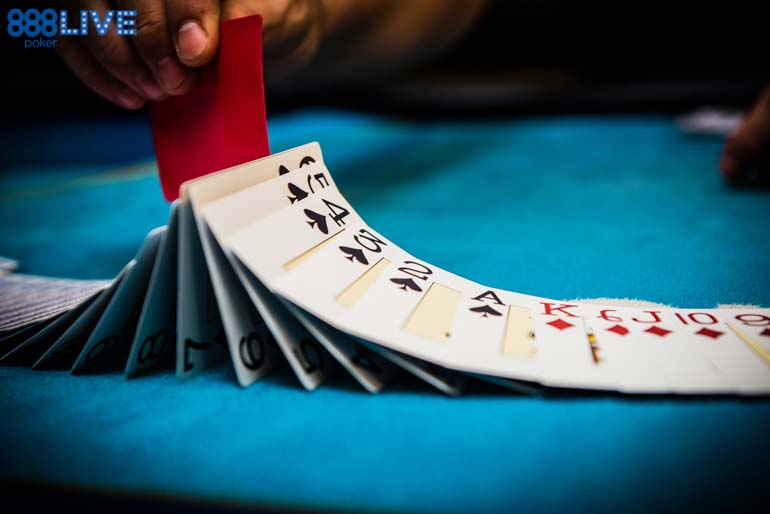Are you looking for a fun game with plenty of action for that next poker home game? Anaconda features some unique poker options that make for a fun night of gambling. The game often has players rethinking decisions and chatting it up with their opponents.
You won’t find Anaconda in a casino poker room. But the game adds some intrigue among players as they pass cards and look to improve their hands.
It also brings some big hands to the table, adding to those critical decisions to fold, call, or raise.
Here’s a look at how to play Anaconda Poker.
Table of Contents
How to Play Anaconda Poker
Anaconda is a game based on traditional Seven Card Stud. As in a Stud game, players attempt to make their best five-card hand. But how each player gets there in Anaconda is a bit different than in traditional Stud.
- To begin a hand, each player receives seven cards.
- The player to the left of the dealer then opens a round of betting
- Players can call, fold, or raise as in a traditional game of poker.
- After betting, each player passes three cards to another player.
Which direction those are passed is determined before play begins – either to the left or the right.
- Once passing ends, players again bet with the first action, often rotated to the next player on the dealer’s left.
- Afterwards, players then pass two cards. This action can happen in the same direction, such as to the left or right.
The passing move often goes to a new player. So, the pass may go to the player two to the left (or right) – skipping the passed player in the first round.
- After players receive their two news cards, another betting round occurs.
- All players then pass one more card with another round of betting.
As in traditional Seven Card Stud, players can fold their hands at any point along the way.
Pass Your Trash
 Anaconda Poker: Pass Your Trash
Anaconda Poker: Pass Your Trash
The passing element adds plenty of fun as players hope to build hands. But they must also consider what other players might send their way. At times, players may also have to break up decent hands and draws to pass some of their cards.
You may pass particular cards. Then realise you’d have made a much bigger hand had you kept different cards.
For those reasons, the game is also called “Screw Your Neighbour” and “Pass Your Trash”. It has become a popular game for many home games.
- Once the passing rounds have ended, players then discard two cards.
- They can place their five remaining cards in any order.
- All players then reveal one card face up.
- This action continues one card at a time, followed by a round of betting.
Players can see all the upcards during the process. So, they can fold or raise along the way as needed.
Once all cards are turned, the best hand wins what can often be a huge pot.
Strategy Considerations
The passing/drawing element means there are usually much higher hands made than in traditional Seven Card Stud.
Being willing to fold better hands is a good skill for Anaconda Poker.
- A player with two-of-a-kind has a much better chance of landing a Full House, undoubtedly a dominating hand in this game.
- Straight and Flush draws are also likely to hit, considering the extra cards coming your way.
 Strategy Considerations
Strategy Considerations
The game can also be in a high/low split format. So, it may be critical to think about the player who will be passing you cards.
If you have an in-between hand, this may help determine which of your own cards to pass. If this player tends to play low, consider keeping higher-drawing hands and vice versa.
- Also, those lower straight-drawing hands can pay dividends if they hit a low in a high/low split version.
- Another key consideration is remembering the cards that you’ve already passed to a neighbour.
- Use this info to determine future passes and what possible draws might do well for your own hand.
Some careful analysis of your cards and the players around you can pay off in Anaconda Poker.
During the stages where players flip cards and bet, it’s crucial to look at other cards and determine the strength of your cards.
- Be willing to let a hand go if you know you’re beat.
Also, in high-low games, be aware of possible high hands around the table. Say multiple players are going high, and there look to be no other lows.
- Raising builds the pot as you freeroll.
This strategy goes for your premium high hand when others look to be going low.
Anaconda Poker Variations
Like most poker games, different versions of Anaconda have come along through the years. As mentioned above, the high/low split version of the game is a popular option.
Here are a few others to consider.
 Anaconda Poker Variations
Anaconda Poker Variations
- Wild Cards
Adding some wild cards to the mix is a popular option for many home game poker players. A Joker is sometimes included. But usually, it can only be an Ace or part of a straight, flush, or straight flush (sometimes referred to as the “Bug” in this usage).
Other players may want to use different wild cards, often with the Suicide King (hearts) or One-Eyed Jacks (spades and hearts). Some players prefer to get even crazier with multiple cards like 2s and 3s also wild.
This variation can make for huge hands. So, it’s essential to tread lightly with marginal hands in these types of games.
- Differing Numbers of Starting Cards
Another easy option is to change the number of players’ starting cards players. A traditional seven-card game means seven players can get in on the action with 49 total cards in play.
But some players like to reduce or increase the number of cards in each player’s starting hand.
Six starting cards is standard as well in this game. Adding another player to the mix accommodates those larger games with eight players. Smaller groups may even make for a big game with eight cards.
There’s even a Five Card Draw version of the game. Players start with only five cards and pass fewer cards, two, then one. The fewer cards and fewer betting rounds make for weaker hands than seen in the traditional seven-card version of the game.
- Altering Passing and Betting Rounds
Some home games alter things even more by changing betting directions for each passing round.
Another option is to do the following –- Place all discards in the middle of the table
- Shuffle them
- Then redraw
This format makes for a truly random draw. Players are unable to base some of their play on what they may receive from particular opponents. So, accounting for player tendencies is out of the equation entirely.
If a few players at the table know each other’s playing style too well, this twist adds more randomness to the game.
****
Poker fans looking to add some spice to a night of card-playing action with friends should consider adding Anaconda to the mix.
There is plenty of betting and the passing aspects to bring out the social side of the game.
Pass wisely, and good luck!


